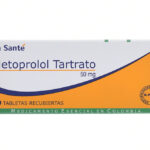Metoprolol Side Effects In The Elderly

As you age, even though you may have taken a medication for decades, your body may react differently to it later in life. One reason for this is that your metabolism has slowed down. Some medicines need to be processed by your liver to benefit your health; slower digestion and liver function mean it may take longer for a drug to get into your bloodstream. Later, remnants of the medicine need to be eliminated from your body by the liver and kidneys. Slowdowns at this stage mean it may take longer for a drug to leave your body, so its effect lasts longer.
Studies also show that certain medications are less safe for older people, and it is important that you work with your provider or pharmacist to use medications that are safe for your age. The American Geriatrics Society’s Beers Criteria lists medications that may not be safe in older people and can be used as a tool when you talk with your provider or pharmacist about using safe medications.
What is metoprolol?
Metoprolol is a medication used alone or together with other medicines to treat high blood pressure (hypertension). High blood pressure adds to the workload of the heart and arteries. If it continues for a long time, the heart and arteries may not function properly. This can damage the blood vessels of the brain, heart, and kidneys, resulting in a stroke, heart failure, or kidney failure. High blood pressure may also increase the risk of heart attacks or strokes. These problems may be less likely to occur if blood pressure is controlled.
Metoprolol is also used to treat severe chest pain (angina) and lowers the risk of repeated heart attacks. It is given to people who have already had a heart attack. In addition, metoprolol is used to treat patients with heart failure.
Metoprolol is available in these two forms, which are described in more detail below:
• immediate-release tablets, called metoprolol tartrate
• extended-release tablets, called metoprolol succinate
Both of these forms of metoprolol can be used to:
• prevent angina (a type of chest pain)
• treat high blood pressure
Additionally, metoprolol succinate is used to treat heart failure. And metoprolol tartrate is used to treat a heart attack or prevent one from occurring in the future.
Both metoprolol succinate and metoprolol tartrate can be used in adults. In addition, metoprolol succinate can be used in some children with high blood pressure.
Metoprolol tartrate is an immediate-release tablet, which means it works right away after you take it. Metoprolol succinate, on the other hand, is an extended-release tablet. It works consistently over a period of time after you take it.
How metoprolol works
Metoprolol is a beta-blocker. It works by affecting the response to nerve impulses in certain parts of the body, like the heart. As a result, the heart beats slower and decreases blood pressure. When the blood pressure is lowered, the amount of blood and oxygen is increased in the heart.
How should I take metoprolol?
As stated above, metoprolol comes as a tablet and an extended-release (long-acting) tablet to take by mouth. The regular tablet is usually taken once or twice a day with meals or immediately after meals. The extended-release tablet is usually taken once a day. To help you remember to take metoprolol, take it around the same time(s) every day. Follow the directions on your prescription label carefully, and ask your doctor or pharmacist to explain any part you do not understand. Take metoprolol exactly as directed. Do not take more or less of it or take it more often than prescribed by your doctor.
The extended-release tablet may be split. Swallow the whole or half tablets whole; do not chew or crush them.
Your doctor may start you on a low dose of metoprolol and gradually increase your dose.
Metoprolol controls high blood pressure and angina but does not cure them. Metoprolol extended-release tablets control heart failure but do not cure it. It may take a few weeks before you feel the full benefit of metoprolol. Continue to take metoprolol even if you feel well.
Metoprolol side effects in the elderly
Based on metoprolol tartrate’s package insert, clinicians are advised to start the medication on a low dose in geriatric patients (> 65-years-old) due to comorbidities, an increased prevalence of reduced organ function (i.e. liver, kidneys, and heart), and concurrent use of other drugs. As a result, older people may have more metoprolol in their bodies over a longer period. And this may increase their risk for side effects, such as dizziness or feeling sleepy.
Metoprolol in rare cases can cause delirium, especially in the elderly population. Some scholars have argued that the use of beta-blockers like metoprolol in older adults may not be justified because of physiologic changes in people over 60 years of age. These include a low cardiac output, bradycardia, high total peripheral resistance, reduced renal blood flow, glomerular filtration rate, and low plasma renin activity.
The full list of metoprolol side effects is presented below:
• cold hands and feet
• constipation
• depression
• dizziness or lightheadedness
• dry mouth
• gas or bloating
• heartburn
• nausea
• rash or itching
• runny nose
• stomach pain
• tiredness
• vomiting
Some side effects can be serious. The following symptoms are uncommon, but if you experience any of them, call your doctor immediately:
• fainting
• rapid, pounding, or irregular heartbeat
• shortness of breath
• swelling of the hands, feet, ankles, or lower legs
• weight gain
• wheezing
Metoprolol may cause other side effects. Call your doctor if you have any unusual problems while taking this medication.
If you experience a serious side effect, you or your doctor may send a report to the Food and Drug Administration’s (FDA) MedWatch Adverse Event Reporting program online (http://www.fda.gov/Safety/MedWatch) or by phone (1-800-332-1088).





